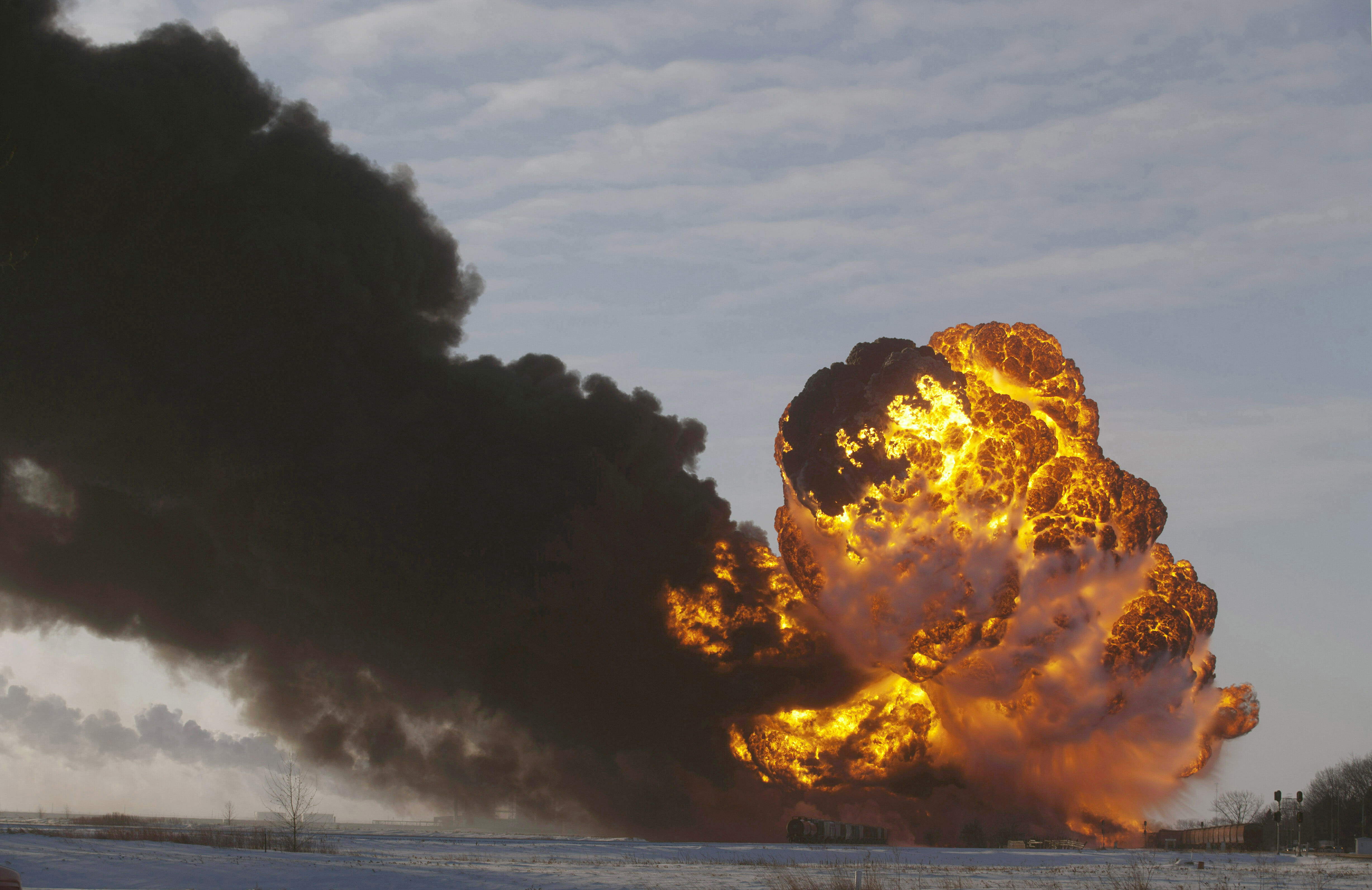
US withdraws train crew proposal that came after explosions
BILLINGS, Mont. (AP) — The Trump administration said Thursday it was withdrawing a proposal for freight trains to have at least two crew members, nullifying a safety measure drafted under President Barack Obama in response to explosions of crude oil trains in the U.S. and Canada.
A review of accident data did not support the notion that having one crew member is less safe than multi-person crews, Department of Transportation officials said. The withdrawal also seeks to pre-empt states from regulating crew sizes.
The 2016 proposal followed oil train derailments including a runaway oil train in 2013 that derailed, exploded and killed 47 people while levelling much of the town of Lac Megantic, Canada. Other derailments of trains carrying oil and ethanol have occurred in North Dakota, Oregon, Montana, Illinois, Virginia and other states.
Under Obama, regulators concluded that having two or more crew members would be worth the extra cost even if it prevented a single accident.
The rail industry, which long maintained that crew requirements were unnecessary, cheered Thursday’s move.
But a representative for a rail workers union said it would put the public at greater risk by removing a safeguard against accidents. Most trains currently operate with at least two crew members but without a government regulation there’s no guarantee that would continue indefinitely.
“If railroads would start running single person operators, there’s nobody up there to interact to make sure everything is done right,” said John Risch, legislative affairs director for SMART Transportation Division, a rail workers union.
“The government has essentially said we’re not going to provide any oversight whatsoever. Whatever the railroads want to do, they can do,” Risch said.
The Federal Railroad Administration said in a statement that the rail industry has “maintained a strong safety record in the absence of regulation on this issue.”
The statement also said a crew staffing rule would have would have been “an unnecessary obstacle” to future innovation in the industry.
Thursday’s withdrawal marks the latest rollback since President Donald Trump took office of safety rules adopted under Obama in the face of opposition from the energy and transportation industries.
The administration this month eased inspection requirements for offshore oil and gas drilling put in place after the deadly 2010 BP Deepwater Horizon explosion and oil spill. And transportation officials had earlier rescinded a requirement for more advanced electronic brakes for trains hauling crude and other hazardous fuels.
Railroad company representatives said the withdrawn crew rule would have locked them into crew sizes at a time when the industry is expanding the use of new technologies such as positive train control. Those are computer-based systems that can automatically stop trains to prevent accidents caused by high speed or collisions.
“Allowing railroads the flexibility to adjust their operations to reflect the capabilities of technologies like PTC (positive train control) will help advance railroads’ mission to achieve an accident-free future,” Association of American Railroads President and CEO Ian Jefferies said.
___
Follow Matthew Brown at https://twitter.com/matthewbrownap
The Western Journal has not reviewed this Associated Press story prior to publication. Therefore, it may contain editorial bias or may in some other way not meet our normal editorial standards. It is provided to our readers as a service from The Western Journal.
Truth and Accuracy
We are committed to truth and accuracy in all of our journalism. Read our editorial standards.
Advertise with The Western Journal and reach millions of highly engaged readers, while supporting our work. Advertise Today.












